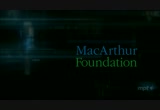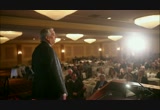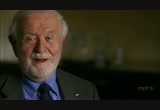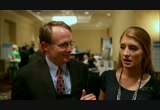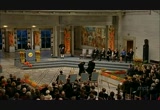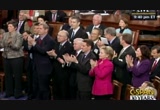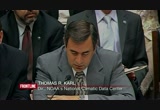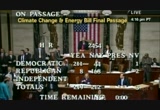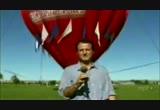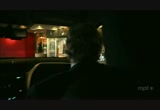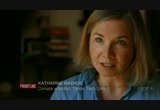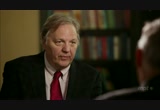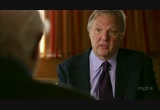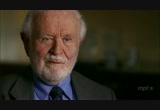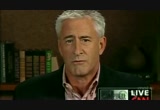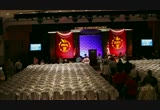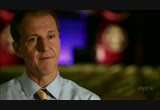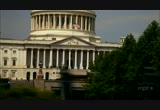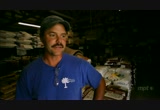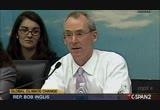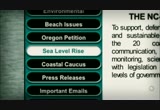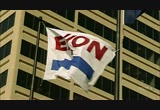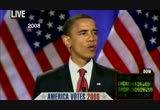tv Frontline PBS October 24, 2012 2:00am-3:00am EDT
2:00 am
>> the findings are blunt-- climate change is happening... >> in the last election, few seemed to doubt that climate change was real. >> climate change poses a growing danger. >> the risks of climate change are real. >> but since then, a successfl campaign has been waged to introduce doubt about the science. >> this massive global conspiracy to make a certain case. >> if you pay scientists enough money, they'll find what you want them to find. >> they are cooking the data. >> scientific malpractice. >> do you think the science is being hyped on global warming? >> oh, very definitely, yes. >> correspondent john hockenberry investigates. >> the politics have gotten to
2:01 am
the point where people just don't want to listen to science. >> how did it happen and who's behind it? tonight, "climate of doubt." >> frontlinis made possible by contributions to your pbs station from viewers like you. thank you. and by the corporation for public broadcasting. major funding is provided by the john d. and catherine t. macarthur foundation, committed to building a more just, verdant and peaceful world.additional funding is provided by the park foundation, dedicated to heightening public awareness of critical issues. and by the frontline journalism fund. with grants from scott nathan and laura debonis, and millicent bell, through the millicent and eugene bell foundation. major funding for this program is provided by the kendeda fund.
2:02 am
>> chicago is now under full national security. >> a no-fly zone is in effect, except for the world leaders who are landing at o'hare, as president barack obama and a number of world leaders... >> hockenberry: it was a big weekend in chicago. last spring, the president was in town, along with the leaders of nato, to discuss threats to global security and nuclear proliferation. at a huge convention center, the eyes of the world were watching. >> ...that demands glol solutions. we came to chicago... (police whistle blows) >> hockenberry: but across town in a small hotel ballroom, the te of the world was also on the agenda. >> everything will be revealed in the second term. >> hockenberry: the eyes of the world might have missed this gathering. >> get ready for your al gore snow job. >> hockenberry: the message here is that man-made global climate
2:03 am
change is a myth, a hoax. this conference is an annual pilgrimage for the key skeptics. we came here to understand how they have made their views a mainstream fact of american politics. (applause) they think of themselves as rebels, up against the biggest players in science, government and the media. >> whole industries, wind and solar, are based on public fear of global warming, and the mainstream media has pretty much given up its role as an independent reporter on these things and has become an advocate. >> if you add up all of the resources of our side of the debate and all of the resources of the other side of the debate, this is a david vs. goliath story. >> hockenberry: you're doing pretty well. >> there are holdouts among the urban bi-coastal elite. but i think we've won the debate with the american people in the heartland, the people who get their hands dirty, people who dig up stuff, grow stuff and make stuff for a living, people
2:04 am
who have a closer relationship to tangible reality, to stuff. we need to keep banging away on the science. >> hockenberry: myron ebell chairs a group called the cooler heads coalition, one of a team of skilled policy advocates driving a remarkable turnaround that has already changed the u.s. political landscape. >> warming isn't, in fact, accelerating. in fact, there's been none for 15 years. >> hockenberry: there's christopher monckton, a big draw at these meetings, who brings the skeptics to their feet every time. >> god bless america. >> ...economic salvation. this is our way out. >> hockenberry: and james taylor, senior fellow at the heartland institute, organizer of this gathering. >> the debate indeed is over. in the years prior to 2007, the 2008 elections, we actually heard from many folks that we should tone it down on global warming, we should not talk about the issue, because the court of public opinion had already decided and we were on the losing end. but we believe that if we present the case to the american people and it resonates, if they
2:05 am
get it, then that's going to work its way up the political stepladder. >> hockenberry: you've really changed the game on global warming. >> oh, i certainly hope so. >> hockenberry: these political messengers rely on a small group of outspoken scientific contrarians, like climatologist pat michaels of the libertarian cato institute. >> every paragraph can be contended. >> hockenberry: willie soon is an astrophysicist who studies the sun and stars. >> ...a mechanism to transport anything from the tropics to the arctic... >> they cannot fit northern hemisphere and southern hemisphere... >> hockenberry: and fred singer, the veteran scientist at these proceedings. he's a retired physicist once responsible for government weather satellites, who tells people the climate needs no help from worried humans. >> climate, to me, has become a non-issue. it's a phantom issue. there's nothing wrong with climate. it will change no matter what we do.
2:06 am
it'll get colder, it'll get warmer. we just have to wait a little. >> hockenberry: singer says he's dedicated to explaining his theories about global warming. what keeps you going? what's your motivation? >> basically i like to see good science being done and protected. i think i'm fighting here for scientific truth. that's important to me. >> hockenberry: do you think the science is being hyped on global warming? >> oh, very definitely, yes. >> hockenberry: armed with that conviction, this team of skilled political messengers and contrarians has certainly changed the game. in just four years, the number of americans who agree global warming is man-made has dropped to about half. it's a message that is inspiring a new generation of skeptics. >> i would like to really listen to these scientists, who came and talk and have dedicated their lives to debunking this fallacy, so to speak.
2:07 am
>> hockenberry: once upon a time, what these people call a fallacy had another name: the truth. >> you've heard of off the charts... within less than 50 years, it'll be here. so-called skeptics... >> hockenberry: in 2006, the film an inconvenient truth told a disturbing story and galvanized public awareness about the climate. >> to a new report on global warming from a prestigious panel of scientists convened by the un. >> a new grim report out today from... >> hockenberry: this comprehensive report in 2007 took it to another level. scientists from 30 nations concluded that global warming is unequivocal and that human activity is mostly the cause. >> it is the definitive report on global warming, and it's frightening. >> i call upon the peace prize laureate for 2007, al gore, to come forward... >> hockenberry: the un scientists and former vice-
2:08 am
president al gore would share the nobel peace prize. the cause had a consensus and a credible leader. the skeptics would take on both. >> i think al gore was probably the best thing that could happen to global warming skeptics. >> from my perspective, al gore was the perfect proponent and leader of the global warming alarmists, because he's very politically divisive and controversial. >> i think it was his tone and manner. he did, at a certain point, come across as holier than thou. and that's another thing about americans. they are not really big on holier-than-thou. >> now that is a g2v aircraft... >> hockenberry: personalizing the attacks was part of an approach that was immediately embraced and amplified by friendly media. >> and that is the former vice- president getting off that plane and into a town car-- by the way, not a hybrid. >> he equates the failure to recycle aluminum cans with the holocaust. >> he wants to be a super hero action figure, and... >> hockenberry: myron ebell was acting on a broad strategy he
2:09 am
helped create more than a decade ago. in this 1998 action plan, "victory will be achieved," it said, when the public "recognizes uncertainties in climate science." today at the washington, d.c., headquarters of the competitive enterprise institute, a free market think tank, you can see myron ebell's philosophy proudly displayed on the walls. >> they're all cei authors... what we're fighting is the expansion of government. and there are many pretexts for expanding government. >> hockenberry: opposing government action on climate change to defend american freedom is a perfect fit. >> we felt that if you concede the science is settled and there is a consensus, you cannot... the moral high ground has been ceded to the alarmists. >> hockenberry: so you had to go to work and break down this consensu >> yes. and we did it because we believed that the consensus was
2:10 am
phony. we believed that the so-called global warming consensus was not based on science but was a political consensus, which included a number of scientists. >> hockenberry: in 2009, agreement on global warming seemed part of the solid wave of enthusiasm that elected barack obama. with the changing of the guard in washington, there was a bipartisan call to action, a sense of inevitability. >> madam speaker, the president of the united states. >> hockenberry: an idea that for years had struggled for attention in congress would get its moment of truth. >> so i ask this congress to send me legislation that places a market-based cap on carbon pollution... >> hockenberry: the president backed the so-called cap-and- trade approach, a system of regulations and financial incentives to eventually reduce the emission of carbon into the atmosphere. it seemed there s consensus on climate change. >> there was an uneasy
2:11 am
consensus. but the people who have always objected to change had not yet really engaged. and because of the consensus, because there was a sense that there was going to be movement, that galvanized the action of the people who oppose it. >> the american people hadn't focused on these issues until it actually came to a vote in congress on a bill to implement these policies. >> today's hearing is on... >> hockenberry: the soft consensus for taking action ran into the bitter partisan divisions in congress. congressional hearings on cap-and-trade would become a stage where opposing views would get equal time. >> professor schrag, you just heard... >> hockenberry: pro cap-and- trade lawmakers would call leading climate scientists and policymakers to make the argument for action now. >> it's very clear from that estimate that in fact we're in for bigger trouble. >> one of the things that we've already seen is many observed changes in the climate. >> global climate change is a serious threat to our national
2:12 am
security. >> hockenberry: the skeptics had their own witnesses. they testified that nothing was settled and that global warming might actually be good for the planet. >> say that again. carbon dioxide is what? >> is plant food. >> it's plant food-- yeah. >> hockenberry: the testimony of the skeptics argued for a time out. there was enough uncertainty, they said, to justify delay. >> the right response to the non-problem of global warming-- first slide, please-- is to have the courage to do nothing... >> ...that the fear of catastrophic man-made global warming is mistaken. >> this demonstration shows that oft-reported mantra in washington, quote, "the science is settled," is not true at all. >> hockenberry: skeptics had found a seat at the table, but the scientific consensus still had the momentum. when cap-and-trade came up for a vote in the house in 2009, it passed, with eight republicans on board. >> the nays are 212. the bill is passed.
2:13 am
>> the waxman-markey cap-and- trade bill passed the house very narrly, 219 to 212. thmembers of the senate who were going to take it up in july went home for the fourth of july recess. and they got an earful from their constituents. >> you don't trust me? (audience shouting "no") >> let's talk about some of your other votes, such as cap-and- trade. (people cheer) >> we are not for more government! >> hockenberry: the tea party saw a frightening expansion of government in the health care plan and the push for cap-and- trade. >> you're a traitor, lindsey graham. you've betrayed this nation and you betrayed the state. >> the people of this country were really not concerned one way or the other on this issue until the economy started going south in 2008. >> hockenberry: was that an opportunity to push back on climate change, the recessio >> it sure was. >> i'm tim phillips, president of americans for prosperity. we're here in billings, montana.
2:14 am
>> hockenberry: what part did you play? >> we certainly did tv ads, radio ads, social media. we did rallies, events, we launched something we called hot air. and we're sending a message to senator baucus and senator tester to vote no on this job-killing, tax-increasing cap-and-trade. we got a hot-air balloon, put a banner on the side of it that said, "cap-and-trade means higher taxes, lost jobs, less freedom." and we went all over the country doing events and stirring up grassroots anger and frustration, concern. >> cap-and-trade will slow the economy and cost american jobs. >> hockenberry: americans for prosperity's well-financed campaign was an aggressive one. ads that went after cap-and- trade policy... >> america can't afford the cap-and-trade tax. >> hockenberry: and said the science was a hoax. >> congress should stop wasting our money and focus on real problems. >> isn't it time congress listened to the rest of us? >> hockenberry: in the tea party's anti-tax, anti-big government message, you could now hear the skeptic mantra, attacking climate science and
2:15 am
cap-and-trade. >> cap-and-trade and taxing americans... >> hockenberry: at some tea party events, global warming skeptics were a big draw. >> gives me great pleasure to welcome lord monckton! (audience cheering) >> hockenberry: introduced like a professional wrestler, christopher monckton is a former british journalist who admits he has no scientific qualifications. >> now we are met on a great battlefield of a new civil war. >> hockenberry: but here, whipping up the crowd is his indisputable expertise. >> now i know that in american speak you have a word for global warming. can someone tell me what it is? >> all together. global warming is... >> bull (bleep)! >> hockenberry: events like these fertilized the growing public doubt about climate change that was beginning to register with senators. with widespread anxiety over a shrinking economy, cap-and-trade
2:16 am
was tabled in the senate. the momentum towards action on global warming was vanishing. >> i often say, if you ever wonder as an activist on our side, are you making a difference, just look at cap-and-trade. january of '09, we had a president with 60 votes in the senate. and then speaker pelosi with a 50-plus seat majority. and cap-and-trade was at the top of their agenda. and in the end they were beaten. >> hockenberry: you've said, "if we win the science argument, i think it'same, set and match." >> mm-hmm. >> hockenberry: why do you want to win the science argument? >> if the science argument is won, i do think it would, you know, pull out the final underpinning of this legislative effort and this regulatory effort the left is undertaking. >> hockenberry: diminish the credibility of the scientific consensus and action on climate change grinds to a halt. at a conference in long island, we witnessed how these skeptics build their message of doubt. we once again saw fred singer.
2:17 am
>> this is a conference mainly for medical doctors. >> hockenberry: delivering his message to a group of physicians who seemed eager to hear it. >> ...tell me that there hasn't been any perceptible trend. you essentially get no warming trend. in the last ten years, there hasn't been a warming. we don't know why that is. but one doesn't see any warming in the observations. there simply is no trend. >> hockenberry: no warming in the last ten years? no long-term trend? climate scientists would say that's playing games with the data. >> you can, if you want, very carefully select the end points of your time series, the starting month and the ending month, and you can come up with... maybe you can come up with something that shows no warming. >> hockenberry: in a sense, what dessler is saying is that you can do this at home. on a complex chart depending on the beginning points x and ending points y, you can select a trend line that does indeed show temperature going down.
2:18 am
>> hockenberry: could i pick ten years of world history and show a climate cooling? >> oh! you could totally do that. in fact, you could take the entire climate history that we have in the instrumental record and you could find cooling trends every ten years. >> hockenberry: cooling trends between 1958 and 1969, 1969 and 1978, 1978 and 1987 and so on. scientists have a name for this. they call it "going down the up escalator." >> you pick the end points and you could find any particular year as part of a cooling year, but actually the whole thing has been moving up. >> if you look at all of the data, it's quite clear that the warming is continuing. >> so the 2000s was the warmest decade on record, the 1990s was the waest decade before that, the 1980s bere that, and most of us in the field of climate science expect, but we can't be sure, we expect that the 2010s
2:19 am
will be warmer than the 2000s. >> hockenberry: against the backdrop of all the pressure from skeptic groups, congress ordered a comprehensive review of climate change research by the national academy of sciences. the findings came back even stronger on human-caused climate change, and a subsequent study showed 97% of active climate scientists agreed. what's settled here on climate change? >> virtually every place on earth is warming up, and people who have tried to go back and scrub the data-- like is there a mistake with the way they are making these measurements?-- they've all concluded, no, the people who are doing this work at the key places around the world are agreeing with each other. >> hockenberry: what's the bottom line, though, on human-caused global warming? i raise my hand in high-school science class and you're the teacher. are humans causing the global warming we're seeing? what's your answer? >> mostly. >> hockenberry: yeah. >> scientists are trying to shoot it down all the time, and
2:20 am
years and years and years nobody's been able to. so at some point you have to say maybe it's right. >> hockenberry: here's what the national academy of sciences report actually says: "climate change is occurring and is largely caused by human activities and poses a significant risk for a broad range of human and natural systems." you say that's false. >> yes. >> hockenberry: false. >> false. >> hockenberry: and if most of the climate scientists believe that statement, they are deluded? >> yes. >> hockenberry: and you're seeing something they're not seeing? >> yes. >> hockenberry: so it's 97% of them and one of you? >> oh, well, you can put it that way if you like. but i don't think that's the way it works. there's hundreds of us-- hundreds, thousands of us. look, 31,000 scientists and engineers signed a statement to the contrary to what you just read. >> hockenberry: the oregon petition? >> yes. >> hockenberry: the 14-year-old
2:21 am
petition is not exactly an exclusive club. a bachelor of science degree is all it takes to get you on the list. this document, skeptics claim, counters the scientific consensus on global warming. now, are they all scientists? >> yes. one-third of them have ph.d.s. look, they are not specialists in climate. >> hockenberry: well, some were celebrities and friends... >> eh... >> hockenberry: it's a time- honored tactic by the skeptics: authentic-looking documents and reports that don't stand up to independent scrutiny. singer also signed the oregon petition. this is not his first time going up against accepted science. >> hockenberry: was the science around chlorofluorocarbons hyped, the science around secondhand smoke hyped, the science around the ozone layer hyped, going back ten, 15, 20 years? >> i'm happy to discuss all of these, since i've been deeply involved in these topics that
2:22 am
you mention. let me start with secondhand smoke. >> fred singer is, i think, a professional contrarian. when i was in graduate school, i worked on stratospheric ozone depletion. and fred would call me when i was in grad school and talk to me about how he didn't think humans were depleting ozone. and before that, he had real questions about whether humans were causing acid rain, and he didn't think that nuclear winter was a... was sound science. and he really criticized the work that connected secondhand smoke to health impacts. and now he doesn't think global warming is an issue. >> so is global warming fact or fiction? >> hockenberry: but fred singer's case was bolstered when, in november of 2009, the skeptics got a break that would put climate scientists on the defensive. >> they falsified results-- "it's the fraud, stupi" to oversimplify it. >> hockenberry: an apparent scandal, and skeptics made the most of it. >> some stolen e-mails...
2:23 am
>> hockenberry: it epted out of more than a thousand hacked e-mails, which included scientists' internal conversations about global temperature data. >> these people have already been revealed as not having any honor, now they're being revealed as not having a sense of shame. >> hockenberry: a few suspicious-seeming e-mails, taken out of context, would become climategate. even though nine subsequent investigations would find no tampering with data, the impact of these e-mails would live on. >> even the lady in the supermarket has heard of the climategate e-mails that purport to show that scientists have fabricated data or manipulated data and that the whole idea of global warming has been proven to be a hoax. that is completely ridiculous. continuing to use those e-mails as "evidence" that global warming is not real is inaccurate. by continuing to use those e-mails to slander the scientific reputation not only of those individual scientists, but of a field as a whole is irresponsible. >> as thousands of documents and internal e-mails come out... >> hockenberry: katharine hayhoe
2:24 am
personally felt the effects of climategate. a climate scientist at texas tech in the panhandle, she's the lead author of a federal research report detailing the impact of global warming in the u.s. >> the e-mails are real. read the associated press. >> hockenberry: she spends every sunday in the church where her husband preaches. >> i think the perception is often that climate scientists are godless, tree-hugging liberals, out to suck all the money out of the average person and use it all to fund all of this research. >> hockenberry: how much of this is a part of your worldview? >> my faith is integral to who i am. that's what defines me, not what i do on a day-to-day basis. and so when i study the planet, i feel as if i'm studying something that god created. >> hockenberry: after she wrote a chapter on climate change for a book on environmental policy, a private group suddenly requested her e-mails. >> just before christmas, this past year, i got my first freedom of information act request.
2:25 am
and it was a bit of a shock. >> hockenberry: the charge is that you used taxpayers' money to engage in your personal activism about climate change. >> every single professor, when invited to write a submitted chapter for an edited volume to be published by an academic press pro bono, would say, yes, that's part of our résumé, that's part of what we're asked at the end of each year, "did you write any edited book chapters?" so it's part of our job to do that. >> hockenberry: to write stuff? >> yes. >> american tradition institute, restoring science, accountability... >> hockenberry: the group requesting katharine hayhoe's e-mails is the american tradition institute. >> ...argument behind the climate movement that didn't withstand scrutiny... >> hockenberry: here is their chief lawyer, chris horner, who wrote the request. chris horner would not speak with frontline on camera, but ati told us they were just looking for insights into how scientists made their deliberations. texas a&m scientist andrew dessler is an expert on how
2:26 am
clouds relate to climate change. he became a target of the american tradition institute after one quote in a front-page new york timarticle. dessler received a legal request for e-mails the next morning. >> and i actually had the first quote in the story. and within hours of that story coming out, the university received a foia request for my e-mail. the goal of this was to try to find something in the e-mails that would be used to embarrass climate science. they were just rolling the dice. it was completely random. they had no reason to think that there was anything improper. but they were hoping to hit the jackpot like they did with climategate. >> hockenberry: as we began our reporting, ati requested e-mails climate scientists might have sent frontline. >> you know, i don't let it stop me. i fully expect that after this program airs, i'll get another foia request for all of my e-mails with you.
2:27 am
and you know, i'll just deal with that. as a climate scientist, i think a lot about the future. it goes with the job. and i want to make sure that in 50 years or 100 years or 200 years, nobody can ever say we didn't warn them. >> hockenberry: this summer at the washington, d.c., defending the dream summit for the group americans for prosperity, they have their own warning: beware the leftist agenda that they believe underliethe climate change movement. reducing emissions is cover for reducing freedom, they say. and they have the means to carry their free market message anywhere in the u.s. >> this is our sixth annual defending the american dream summit. we launched these in the fall of 2007. it's a great way to bring activists together from around the country to kind of bond with the organization, and also it's good to have a bunch of free market conservatives in d.c. occasionally as well. >> hockenberry: how does free market conservatism relate to climate change and the scientific argument over climate
2:28 am
change? >> it doesn't to the scientific side. it very much so relates to the policies that the left pushes in the name of global warming. every once in a while i'll make a statement about the science, but that's a tiny percentage of what we do and how we spend our money. >> hockenberry: oh, you win on the policy, you win on the science. >> i think so. i do. >> hockenberry: this is a community of skeptics. at the afp rally i ran into myron ebell, a supportive attendee and a speaker. so why are you here? >> well, these are the grassroots that, you know, support our side. this is essentially a more organized form of a tea party group, right? a better funded... >> hockenberry: you've said we've made great headway. what it means for candidates in the republican side is if you buy into green energy or if you play footsie on this issue, you do so at your political peril. >> you do, absolutely. and that's a big change, and it is important. again, i remember four, five or even three years ago, john, a lot of republicans, they would
2:29 am
play games with this. they'd say, "okay, oh gosh, i think i need a green energy agenda. but i won't go all the way and support cap-and-trade." they did. they tried to walk down the middle and that's wrong. i think it's philosophically inconsistent, but it's also politically disadvantageous. and we've worked hard to make that so, by the way. the left has had the edge as long as i can remember. they march out to the towns, do whatever they are told to do... one thing we've changed with afp, is we now have an army too. and we can do calls and e-mails and letters and rallies, events, and pressure. and i think that's made a big difference. our side didn't have that five or six years ago on this issue. we do now. i do think it's a new day for that reason. (applause) >> hockenberry: this new day has dramatically transformed the way lawmakers approach global warming on capitol hill. suddenly the news was who wasn't talking about it. >> fred upton, who is chairman of the house energy and commerce committee, he's charged with
2:30 am
writing regulations that would control climate change emissions. and when i asked him this question, "do you think climate change is causing the earth to become warmer?" and he smiled, nice guy, and said, "i'm sorry, i'm just not going to answer that." and he turned around and went on to the house floor, where as a reporter i'm not allowed to go. >> hockenberry: coral davenport reports on energy and environmental issues for the national journal. for him to say, "i don't want to talk about this" is that like the chairman of the armed services committee saying, "i don't want to talk about the pentagon?" >> absolutely, yes. but i should say, that does seem to be a change in chairman upton's views before he took on this leadership. fred upton was, you know, has long been a moderate who's worked on this issue, who's reached across the aisle on these issues. before he became chairman of the house energy and commerce committee, on his website, he had the phrase that "climate change is a problem." that was deleted after he became chairman of the house energy committee. so, we're definitely seeing a shift on this. >> hockenberry: chairman upton
2:31 am
declined frontline's request for an interview. but the congressman wasn't the only one not talking. in 2011, the national journal tried to poll all gop lawmakers on climate change. >> i came up with the idea to ask every republican member of congress three simple questions about climate change. they were very simple. they are basically, you know, "do you think that climate change is causing the earth to become warmer?" >> hockenberry: straightforward. >> how much, if any of that, do you think is attributable to human activity? and what's the appropriate government response? and normally lawmakers love to answer questions, they love to opine. this was amazing. members of congress did not want to answer the question. in some cases they just said straight up, "i'm not going to answer that." in some cases what was really amazing is they literally ran into an elevator and the elevator closed when i asked.
2:32 am
>> hockenberry: with their majority in the house, gop lawmakers took steps to keep the issue from coming up at all, including dissolving the official house committee on global warming. why did you reach out only to republicans on this? >> it's rare to find a democrat who will outright flatly question or deny the basic scientific precepts of climate change. >> hockenberry: this new political environment has been an opportunity for lawmakers like republican james sensenbrenner of wisconsin to claim they are the new mainstream view on global warming. do you believe global warming is caused by the activity of human beings? >> partially, but not completely. >> hockenberry: percentage? >> can't predict that. >> hockenberry: 30%, 50%? >> well, i know it's not zero and i know it's not a hundred. i can't tell you what number it is in between. >> hockenberry: if 97% of scientists say it is mostly or significantly caused by human activity, what do you say to
2:33 am
that? >> they are entitled to their opinion. but they are going to have to... >> hockenberry: do you think this will ever be settled scientifically if 97% consensus doesn't settle it for you? >> well, i... you know, i think that it's up to the scientists and their supporters to convince the public that this is the right thing to do. and the supporters of that side of the argument in the congress have been a huge flop. >> hockenberry: i visited one of the key democrats on this issue, massachusetts senator john kerry. what had happened to all the momentum of four years ago? >> well, american politics is being completely defined by huge sums of money. we had really a very broad coalition of people who believed that we ought to move forward and do something. but as the campaign of fear built up, people began to retreat. they spent huge sums of money in a campaign of major
2:34 am
disinformation that had an impact, had a profound impact. and it has now made many people in public life very gun-shy, because they're afraid of having those amounts of money spent against them. >> hockenberry: this is what they fear: what happened in 2010 to six-term south carolina congressman bob inglis, a republican who once thought he was a safe incumbent in his solidly red state. >> you know, i'm a pretty conservative fella. i got 93 american conservative union rating, 100% christian coalition, 100% national right to life, "a" with the nra. zero with the ada, americans for democratic action, a liberal group. and 23 by some mistake with the afl-cio. i demand a recount. i wanted a zero. >> hockenberry: but inglis does accept the scientific consensus on global warming and favors legislation to curb the effects of co2 in the atmosphere. he faced a tea party rebellion in his primary. >> i had a big tent gathering in
2:35 am
spartanburg county, a bunch of republicans underneath a very big tent. comes a question to me: "yes or no, do you believe in human causation on climate change?" i had a bad habit of answering questions, so i said yes. "boo, hiss" comes the crowd. i was blasted out from underneath the tent. i mean, there are a couple of hundred, 300 people there. i mean, it was intense. >> hockenberry: he was pounded in commercials and on talk radio. >> it became an oft-repeated theme on talk radio, and that is a major source of information, of course, for republican primary voters. they were hearing, "inglis has left the reservation, he is over there somewhere with al gore." so how are things around here? >> they're slow, how the economy is way off.
2:36 am
>> when you get the financial collapse going, that's what made it possible for some well-spent money to blow doubt into the science, because, you know, the bankers failed us, the federal government is failing us, it's spending too much money, and these scientists who are funded by that federal government, they are probably in it too, and besides, they're godless liberals. >> hockenberry: inglis was defeated. >> bob inglis was defeated in a republican primary, 79% to 21%. now, how many times has an incumbent who isn't in prison or facing a prison sentence lost his own primary by 79% to 21%? this was overwhelming. but, what's happened is... >> hockenberry: the smile on your face suggests, "man, we won one." >> of course we won one. >> we're on the record and our grandchildren, our great-grandchildren are gonna read... >> hockenberry: this climate hearing in the lame duck
2:37 am
congress was inglis's last. >> ...your child is sick. 98 doctors say treat him this way, two say no, this other is the way to go. "i'll go with the two." you're taking a big risk with those kids. >> that was a very key factor in ten to 15 congressional districts in the 2010 election, where strong supporters of climate change legislation ended up being defeated. >> and there is nothing like a loss in an election to promote fear in the survivors. and that's exactly what happened in the united states congress. >> hockenberry: beyond washington, in wave after wave, the skeptic tactic of fighting scientific warnings with doubt and delay was finding success. tennessee passed a law allowing the views of climate change skeptics to be taught in schools.
2:38 am
a virginia state legislator cut the words "sea level rise" from an official request to study coastal communities, calling it a left-wing term. here in north carolina, a warning from scientists on sea level rise would cause politicians to try and legislate climate change out of existence. >> they're here to try to protect these houses. >> hockenberry: in 2010, 19 scientists on a state commission warned of a possible sea level rise by the end of the century. >> here you get an idea of the nature of these dunes. >> hockenberry: geologist stanley riggs was one of the scientists. >> what we were asked to do is to develop... what is the history of sea level rise and what can north carolina expect 25 years from now, 50 years from now, a hundred years from now. >> hockenberry: the report said to expect a 39-inch ocean rise, an estimate in the middle of a range consistent with other predictions for the region. 39 inches-- if that comes to pass here, everything we'd
2:39 am
see... >> this town would be underwater. >> hockenberry: the commission's warning was seen as a threat by a coastal economic development group, nc-20. >> now you add the flood from a storm, hurricane, whatever... >> hockenberry: tom thompson is the group's chairman. >> they had a draft policy which mandated that everything be designed and constructed to a 39-inch sea level rise. people that recommended we plan immediately for 39 inches did not understand the economic consequences. >> hockenberry: thompson is a skeptic himself and fears scientists and their warnings more than he fears any climate change. you're not worried. >> i don't believe we're going to have a sea level rise anywhere close to that. i think there are credible scientists out there that are saying it's beginning to decelerate and i think it will. >> hockenberry: nc-20's website contains a familiar archive of skeptic information. there's the oregon petition and a host of sources for people looking to doubt the scientific consensus, people like north
2:40 am
carolina state representative bill cook. well, who do you rely on? >> i rely on whatever science makes good sense. >> hockenberry: you want to show me? >> sure. >> hockenberry: so this here is one of the sources? >> yes, this is a book by fred singer and dennis t. avery. >> hockenberry: right. and what about this book really was meaningful to you? >> well, it's very factual. it tells all the studies and gives you a complete bibliography on who did what kind of study and where it was done, and when it was done and how it was done. this book made better sense to me than what i've seen from other sources. co2 is a gas that is used by all these beautiful trees, grass... >> hockenberry: it's a good thing. >> it's a good thing. >> hockenberry: cook cosponsored a bill to compel north carolina to disregard scientific warnings
2:41 am
about climate change. it was written by state senator david rouzer. >> well, you know, i don't necessarily listen to any one person and i can't, you know, tick off a whole list of scientists that are pro sea level rise and a whole list of scientists that aren't. i'm just coming at it from a common sense standpoint. the earth has been warming and cooling since day one. and, you know, the effect on sea level change, what do we know about it? >> hockenberry: the bill would limit authorities to considering historical data in their sea level projections. the future could only be based on the past. >> the problem is... i mean, north carolina beachfronts are very close to sea level. you're very close and you're vulnerable because of hurricane effects, because of storm surges, and you're vulnerable because of high tides. those vulnerabilities don't go away because you just legislate them away.
2:42 am
>> hockenberry: when the bill hit the beaches of north carolina, it had become so controversial that the provision disregarding global warming was dropped. but the science was put on hold for four years. there would have to be a new coastline study, and skeptic views would need to be considered. well, you're winning. >> well, we won this one. this was a home run. and we're going to be involved, i hope, in picking some of the scientists that come in to redo this thing, because they definitely were one-sided. >> the real estate people, and they have a lot to lose if we have to change... >> what they're saying is that we have to include all the naysayers and all the people who say climate change isn't happening, that sea level isn't rising. so it's got to be... >> hockenberry: which makes it look like you are just one opinion? >> yeah. >> hockenberry: which means you've lost?
2:43 am
>> well, for the moment. there's the tester right there. that ocean will dictate what happens. the ocean's going to win. >> hockenberry: but for now, back at the heartland conference in chicago, they feel they're winning. their campaign of alternative scientific studies, opinion pieces, books and advertising, charts and presentations has been building for years. it's been money well spent. in the early days, much of it came from fossil fuel interests. heartland presenter willie soon has received money from exxonmobil. chris horner was formerly a registered lobbyist for oil, gas and chemical companies. climatologist pat michaels of the cato institute has estimated 40% of his funding has come from fossil fuel interests. >> ...of politics getting into science. >> hockenberry: exxon at one time was one of heartland's most
2:44 am
generous donors. >> there were a lot of corporations, including oil companies, that objected to the kyoto accords in 1997. but most of them lobbied against the treaty on economic and fairness grounds. but exxon did something that i think was fairly radical, which was that they chose to go after the science. >> and as for carbon dioxide, it isn't smog or smoke; it's what we breathe out and plants breathe in. >> hockenberry: borrowing tactics used on behalf of the tobacco industry, advocacy groups were enlisted to confuse the issue and shut down new federal regulations. >> they call it pollution, we call it life. >> a lot of these groups were run by economists, litigators, lawyers and public policy specialists-- people who specialized in getting a message out. >> hockenberry: this group may not have been scientists, but they were really good at this sort of thing. >> well, some of them actually came out of campaigning on behalf of the tobacco industry. the explicit goal that was written down as part of this campaign was, let's create
2:45 am
doubt, create a sense of a balanced debate and make sure that these lines of skepticism and dissent become routinely a part of public discussion about climate science. and, in fact, they succeeded at that. >> (chanting): expose exxon! expose exxon! >> hockenberry: exxon's millions for skeptic groups made it a public target, which would eventually be a problem for a publicly traded company. >> exxon, enough! >> hockenberry: when did this become a pr problem on some level for exxon? >> well, environmental groups, scientists and, later, members of congress became aware of this campaigning, because it was right out in the open. at exxonmobil shareholder meetings, some of these activists and dissenters started turning up to protest exxonmobil's funding of such groups. >> hockenberry: in 2006, new leadership at exxonmobil decided to reassess this "fight the science" strategy. >> they reviewed some of these free market groups that they had
2:46 am
been funding, and they cut funding to the most radical among them, especially the smaller, sort of purpose-built groups that were just concentrating on attacking climate science. >> hockenberry: exxon stopped funding this heartland conference and its sponsors five years ago, but that didn't stop the broader mission of defending the free market. >> ...to close the deficit and ultimately pay off the national debt. >> hockenberry: if dealing with global warming did not involve intervention in the economy, would heartland institute be involved in this? >> that's a theoretical question. we believe in limited government and free markets. we believe in identifying and implementing sound-science free- market solutions to societal problems. >> hockenberry: and that message has generated solid financial support for activist groups like americans for prosperity. >> we have over 80,000 activists and donors across the country who fund afp. >> hockenberry: some big donors? >> sure, you bet. we are glad to have big donors, absolutely. >> hockenberry: exxon? >> i wish we had more corporate support (laughing). they don't tend to want to give
2:47 am
to afp very often. they think, frankly, that we are too out there on the free market front. >> hockenberry: the koch brothers? >> david koch is the chairman of our afp foundation. we are glad to have his support. we don't disclose the level of contributions. but we are very proud to have their support. >> americans for prosperity. we're blessed with just such a leader in our chairman, david koch. >> hockenberry: with money from their oil and gas holdings, david koch and his brother charles, along with other powerful family foundations, have quietly become the venture capitalists of this free market ideology. >> ...american dream of free enterprise, capitalism is alive and well. >> the major funders of the climate countermovement are ideologically driven foundations that are very much concerned about conservative values and world views. >> hockenberry: sociologist and stanford fellow robert brulle is studying the funding patterns of these groups. in fact, he's noticed a new benefactor, an entity called donorstrust. >> hockenberry: who's
2:48 am
donorstrust? >> donorstrust, i think, is a c-4 or c-3 that's given to us, absolutely. >> hockenberry: we discovered that nearly half of americans for prosperity's support comes from donorstrust. and do you know who is behind it? >> i think their board is publicly listed. i'm pretty sure. >> hockenberry: their directors are listed, but the donors aren't. from this office on an unassuming street in alexandria, virginia, according to public records, donorstrust has become the number one supporter of the groups that lead this movement. >> we don't know a lot about donorsust. it is a black box with a few little clues coming out here and there but no real image can be formed yet. >> hockenberry: donorstrust supports "limited government and free enterprise" with a promise of anonymity, their website says, "for donors who wish to safeguard their charitable intent." >> so you see this shift from attributable funding to
2:49 am
anonymous funding, which insulates the giver from any kind of political fallout from their giving. is that people were organizing around, "oh, evil exxonmobil. oh, evil koch brothers." now it's donorstrust, donors capital. who are they? they get money, they give it out. >> hockenberry: and that quiet money buys a platform for people like christopher monkton. >> the scientists who are pushing this have a political agenda. it's a marxist agenda. of course they wouldn't call themselves that. they call themselves environmentalist. green is the new red, if you like. >> hockenberry: amidst all of the conspiratorial language and arguable claims by the skeptics, the idea of doing something about climate change has gotten lost. >> this is not just an economic issue or an environmental concern, this is a national
2:50 am
security crisis. >> hockenberry: the national call to action from just four years ago has vanished. >> the facts of global warming demand our urgent attention. >> i think the risks of climate change are real and that you're seeing climate change. i think human activity is contributing to it. >> we don't always see eye to eye, do we, newt? >> no, but we do agree our country must take action to address climate change. >> why would you ever do a commercial with nancy pelosi? >> i was really stupid. >> do you believe global warming, man-made global warming is real? >> i believe we don't know. >> we don't know what's causing climate change. >> there is no such thing as global warming. >> the science is not settled on this. >> hockenberry: even for president obama, action on climate change has been only a passing reference in a close election campaign. >> denying climate change won't make it stop. these things won't make for a brighter future. >> that issue is not good for them right now. if you've noticed, the president doesn't talk much about it.
2:51 am
>> hockenberry: i've noticed. >> i mean, i've noticed that. >> hockenberry: does that make you feel good? >> i think it says a lot about the effort and i think it says a lot about americans making a decision. >> it's real interesting, because we don't hear barack obama talking much about it. >> hockenberry: i know. >> we don't hear mitt romney talking much about it. >> hockenberry: what if you're wrong? >> what if anybody is wrong in this debate? >> hockenberry: what if you're wrong? >> then i'll have to say i'm sorry. and i wish we could speed up our efforts to reverse the policies that we have supported here at cei. >> hockenberry: apologies or not, inaction has consequences. >> temperature records broken by the hundred. >> hockenberry: there is now no concerted national response to climate change. and delay, the scientific community says, is what the planet simply can't afford. >> climate change is coming. it means drought, it means fire, it means suffering. >> the entire climate is changing.
2:52 am
it's affecting our energy, our water, our agriculture and our health. >> the record-setting drought has forced it to drink from its last reserves. >> the amount of sea ice on the arctic ocean, 2012 is a record low. >> the problem with climate change is, i think to many americans it is seen like a threat not to living generations but future generations. and with that uncertainty, and with the economic climate that we are in, americans have been unwilling to impose a tax on themselves in order to protect generatis as yet unborn. it may be that over the next ten or 15 years, americans will reconsider the ideas that were propounded by these campaigners, that there's a lot of doubt about all of the tenets of this science, and follow a different kind of intuition, which is that this is here with us now.
2:53 am
>> next te frontline... >> the supreme court put elections in the hands of corporations and big money. >> montana. the surprising battleground over campaign finance. >> somebody was buying the state out. >> more ads, more spending, more negativity. >> look who's controlling the message. it's these outside groups. >> it doesn't corrupt the process. it's necessary for the process. >> we're not seeing where the money's coming from. >> what's more important to this country than free speech? >> "big sky, big money," a frontline election special. >> frontline continues online, with a multimedia timeline that tracks the change in public opinion about climate change. >> david vs. goliath. >> more from those behind the campaign to change the scientific and political consensus. >> and i think that's made a big difference. >> examine the media's role. >> by the way, not a hybrid. >> follofrontlion facebook and twitter, or share your thoughts at pbs.org/frontline.
2:54 am
>> frontlinis made possible by contributions to your pbs station from viewers like you. thank you. and by the corporation for public broadcasting. major funding is provided by the john d. and catherine t. macarthur foundation, committed to building a more just, verdant and peaceful world.additional funding is provided by the park foundation, dedicated to heightening public awareness of critical issues. and by the frontline journalism fund. with grants from scott nathan and laura debonis, and millicent bell, through the millicent and eugene bell foundation. major funding for this program is provided by the kendeda fund. captioned by
2:55 am
2:56 am
311 Views
IN COLLECTIONS
WMPT (PBS) Television Archive
Television Archive  Television Archive News Search Service
Television Archive News Search Service 
Uploaded by TV Archive on

 Live Music Archive
Live Music Archive Librivox Free Audio
Librivox Free Audio Metropolitan Museum
Metropolitan Museum Cleveland Museum of Art
Cleveland Museum of Art Internet Arcade
Internet Arcade Console Living Room
Console Living Room Books to Borrow
Books to Borrow Open Library
Open Library TV News
TV News Understanding 9/11
Understanding 9/11
